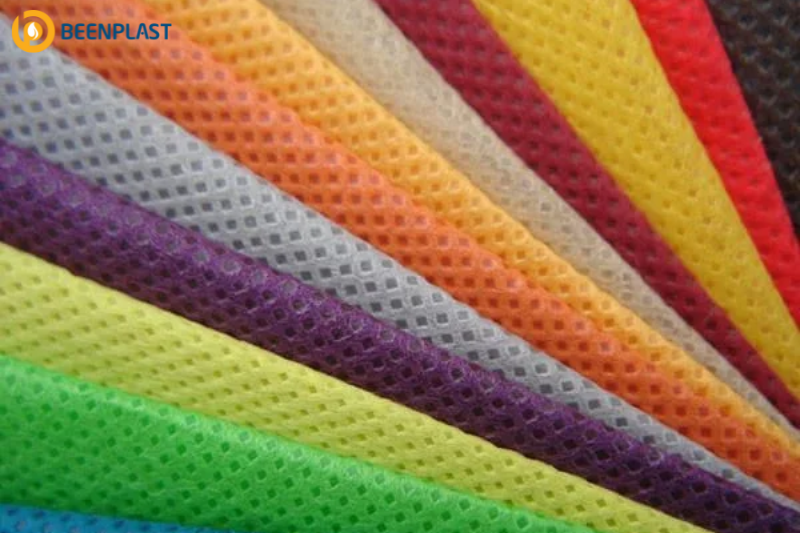Polypropylene beads (synthetic plastic) are melted under high temperature and drawn into fibers. Depending on the purpose of use, the manufacturer has some other ingredients to match the product. The synthetic fibers are then punched, using chemical solvents or thermomechanical machines to bond together to form lightweight and porous fabrics.

Spinning (bonded) nonwovens: Polymer granules are extruded into fibers through filament tubes. The fibers are continuously stretched and cooled before being fed to the conveyor to form a uniform network. The spinning process results in a nonwoven with higher strength than carding, due to the weakening of the filaments. The downside is that the choice of ingredients is more limited. The co-extrusion of the two components results in the bico fiber adding more properties to the network or allowing for air bonding. Note that the term spunbond is reserved for the thermally bonded spinning method.
Raw materials: PP (polypropylene), Pet, Nylon, PE, Polyester. (synthetic thermoplastic).
Application: Packaging (Shopping Bag), PPE for medical medical
Non-woven fabrics are named after their special manufacturing process. This fabric is not created by conventional weaving or knitting but is synthesized from Polypropylene (synthetic plastic) particles.